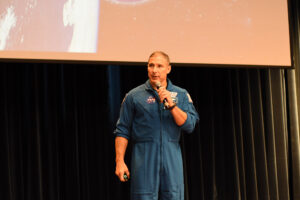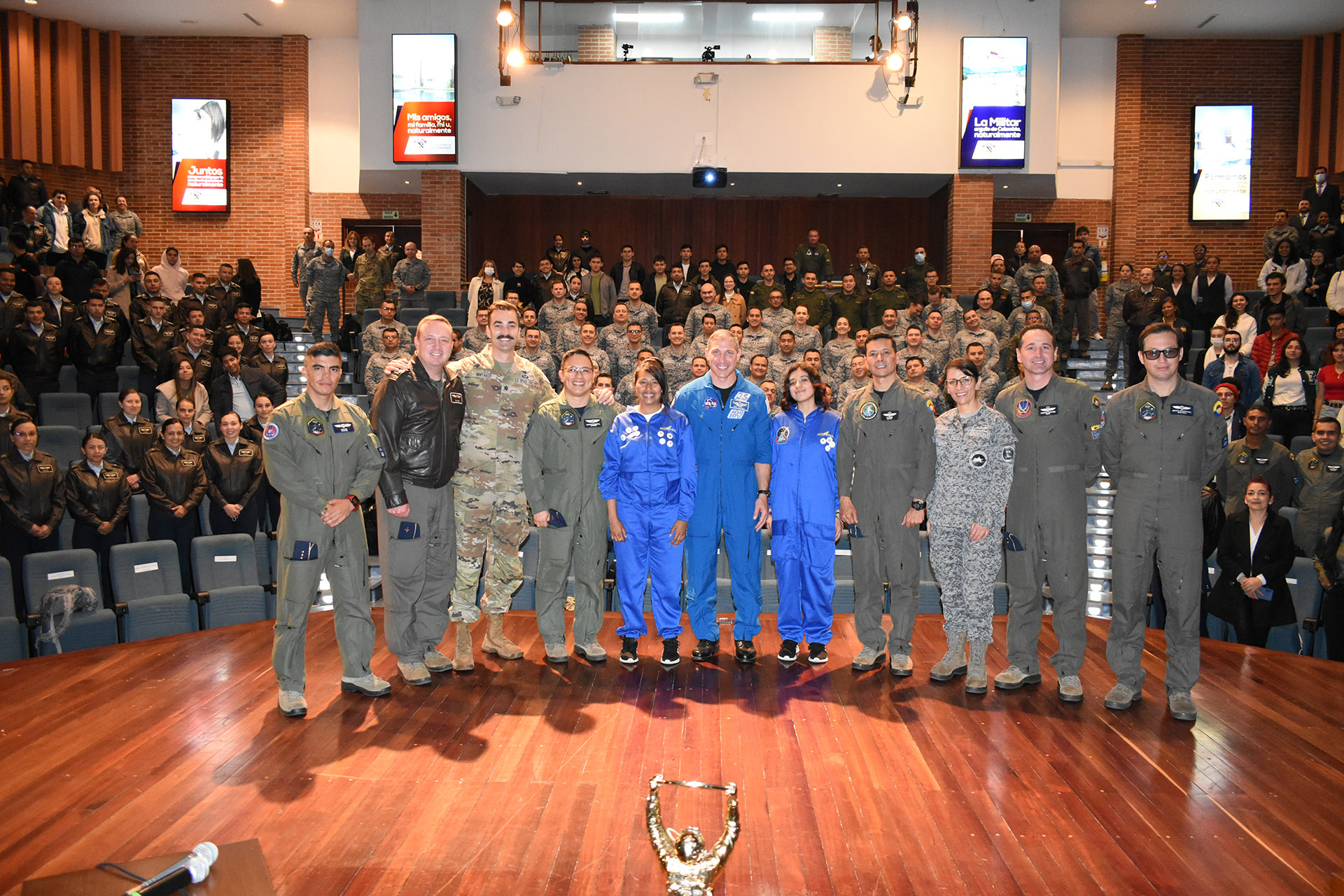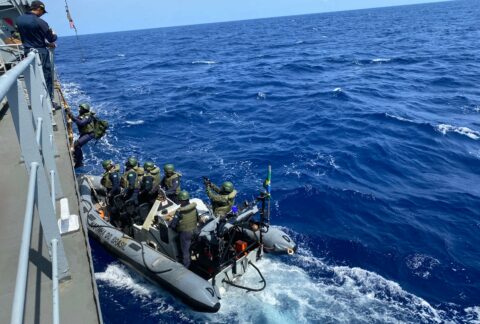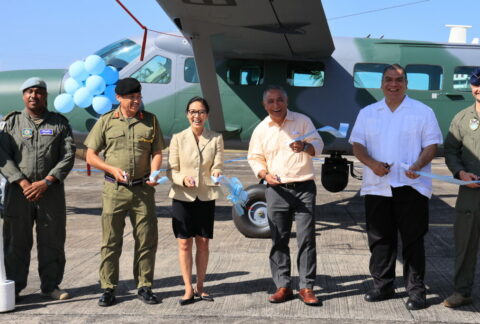World Space Week is an annual United Nations-sponsored event held October 4-10 in more than 95 countries to commemorate the contributions of space science and technology to humanity. On October 4, the Colombian Air Force (FAC) and various civilian and military institutions joined this celebration with an event that brought together more than 1,000 participants from the Colombian academic and scientific community, as well as representatives of the Colombian Army and National Police.
The event, held at the Nueva Granada Military University in Bogotá, promoted space culture through the integration of State, industry, and academia.
The conference
U.S. Space Force Colonel Michael Scott Hopkins, aerospace engineer and NASA astronaut, a special guest at the event, shared his story and the main challenges to become an astronaut and commander of a space mission. “Being patient and never giving up; it took me four attempts in 13 years to be selected,” he said.
Col. Hopkins participated in several conferences throughout Colombia during World Space Week, where he emphasized the commitment of NASA and U.S. Southern Command (SOUTHCOM) to be excellent partners as Colombia develops its space capabilities.

“There has to be a commitment at the national level to continue toward that goal of putting a man in space, in this case the first Colombian. One of the biggest challenges, including in the United States, is that programs take a long time,” Col. Hopkins told Diálogo. “You have to keep those programs running over time, especially through multiple political administrations that generate changes in leadership, and in Colombia they have to have that political commitment.”
The event included the participation of the group of astronauts from the FAC’s first THOR (team of human operation research) space analog mission, who in August simulated a space mission in conditions similar to those experienced on the moon in preparation for a 2030 project to take the first Colombian astronauts into space.
“We identified this scenario, that we need all Colombians to support us, with their specialties and with the professionalism that makes us stand out,” FAC Captain Diego Ernesto Cortes Guaje, head of the Aeronautics and Space Biomedical Research Center of the FAC’s Aerospace Science and Technology Directorate, and commander of the THOR mission, told Diálogo. “It is not an unreachable dream. We’ve had a great reception from public and private entities that want to be part of this great national project.”
“A very important message we want to give is to inspire children that this is already possible in Colombia,” Dr. Diego Leonel Malpica Hincapié, a doctor specializing in aerospace and occupational medicine and a member of the THOR mission, told Diálogo. “The dreams of the little ones are going to become a reality, but we must strengthen education and invite children to become interested in science, mathematics, engineering, and technological development in order to […] be able to achieve the final objective of participating in a manned space program.”
Round table
To conclude the event, the FAC Graduate School opened a round table chaired by Lieutenant Colonel Jorge Giovanny Jiménez Sánchez, director of Science, Technology, and Innovation of the FAC’s Aeronautics and Space Education Department and member of the THOR mission.
“In this short period, I have seen a lot of enthusiasm in all the interested parties regarding the Colombian space program and that for me is a pleasant surprise,” Col. Hopkins said. “May they keep up with that objective.”
On May 10, Colombia became the 19th country — the third in Latin America after Mexico and Brazil — to sign the Artemis Accords, which establish a set of principles to guide space exploration and cooperation among nations participating in the NASA Artemis program.
“Space Week is the icing on the cake of a great year of collaboration between the [SOUTHCOM] team and our Colombian Air Force space partners,” U.S. Space Force Lieutenant Colonel Jonathan Whitaker, SOUTHCOM Space Forces director, said in a statement.









